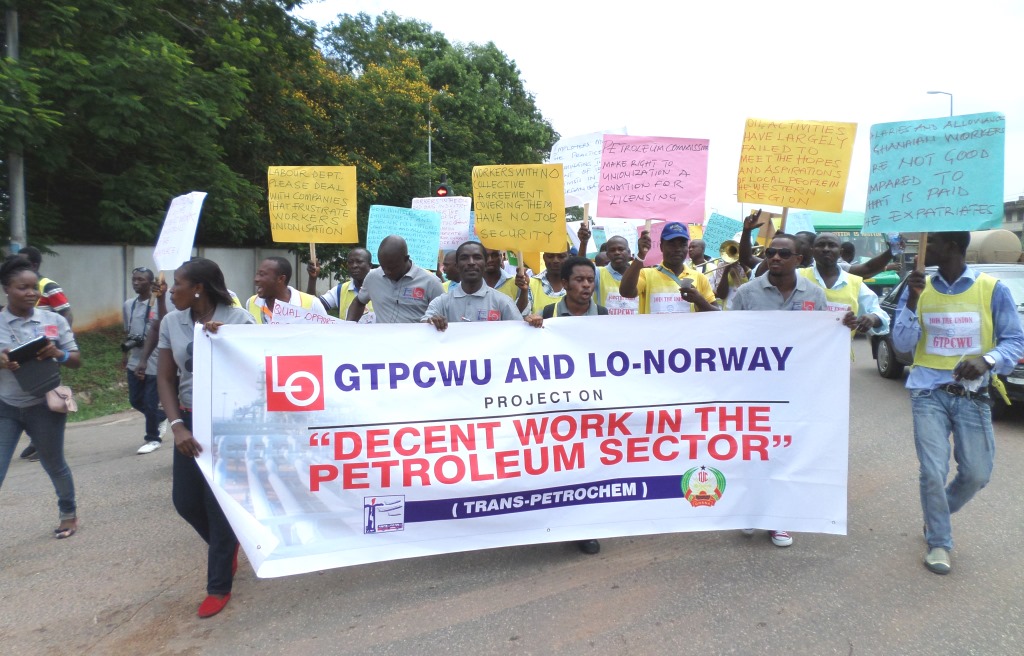On Friday, June 6, 2014, Friends of the Nation (FoN) supported the Ghana Transport Petroleum and Chemical Workers Union (GTPCWU) to undertake a procession through the principal streets of Takoradi, Western Region, to demand for decent work in the Petroleum Sector. FoN mobilized residents from some coastal communities. They were mainly drawn from the Community Environmental Monitoring and Advocacy Group (CEMAG) to join the procession. The march was part of a project being implemented by the Union in collaboration with the Norwegian Confederation of Trade Unions (LO-Norway). The project seeks to advocate for decent conditions for workers in the Petroleum industry.
The procession was done amidst brass band music and was participated by over seventy people including the Union members, Community Environmental Monitoring and Advocacy Group (CEMAG) and members of the media. The people marched along major roads and landmarks such as Old Axim road, Market Circle and Paa Grant roundabout. They made stops at the offices of some oil companies and service providers to raise awareness about the project and make their demands known.
The participants held placards with inscriptions such as “Government Must Ensure Decent Work Conditions for Oil & Gas Workers”; “Give Equal Opportunities to Skilled Ghanaian Workers in the Oil & Gas Industry”; “Oil Activities have largely failed to meet the hopes and aspirations of the people in the Western Region”.
Ghana TUC
The GTPCWU is affiliated with the Ghana Trades Union Congress (Ghana TUC). Ghana TUC was launched in 1945 as a national centre of trade unions, with the major objective of leading the rest of organised labour in protecting collective bargaining rights as well as in policy intervention concerning labour market and other national issues. It began with a total membership of 6,030 belonging to 14 affiliates. The political upheavals of the 1950s up to independence in 1957 provided the atmosphere for the growth of unions. By 1958 when Ghana TUC completed a major round of organisational renewal the over 80 house unions who made up its affiliates were restructured into 24 affiliates. The number of affiliates has changed as a result of amalgamations and withdrawals, and today there are 18 affiliates with varying sizes, ranging from unions with less than a total membership of 1,000 to those with membership of well over 40,000.
CEMAG
To improve citizenry participation in petroleum governance, FoN has facilitated the formation of Community Environmental Monitoring and Advocacy Group (CEMAG) in the six coastal districts of the Western Region.
The main aim of CEMAG is to promote transparency, accountability and environmental sustainability in the exploitation of petroleum resources. CEMAG are made up of Religious Leaders (Christians and Moslems leaders), Traditional Leaders, Youth Leaders, Fisher folks, Women Group Leaders, Media Persons, Student Leaders, CBOs, FBOs, Local TUC Members, Land Owners and Migrant Settlers.
